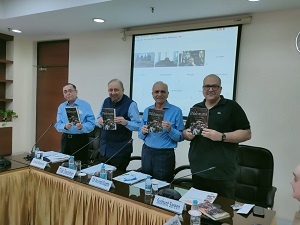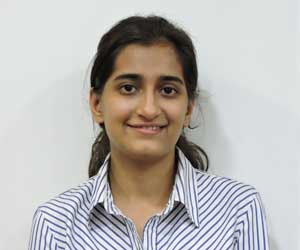On 14th October 2022, Vivekananda International Foundation (VIF) organised a book discussion on "The Pashtuns- A contested history”, authored by Shri Tilak Devahser. This is the fourth book by Mr. Devasher earlier three being Pakistan: Courting the Abyss (2016), Pakistan: At the Helm (2018) and Pakistan: The Balochistan Conundrum (2019). He has also edited three books on Pakistan for the Vivekananda International Foundation. Apart from the author the panel consisted of Dr. Arvind Gupta, Director VIF (moderator), Mr. Sushant Sareen, Senior Fellow, Observer Research Foundation and Mr. Rana Banerji, Former Special Secretary, Cabinet Secretariat.
Dr. Arvind Gupta gave the opening remarks by mentioning that how Pashtuns have been there for last several thousand years shaping the history of the region and will continue to do in the future. The session proceeded with Mr. Tilak Devasher giving the introduction of his book. He elaborated that how ‘The Pashtuns: A Contested History”, seeks answers to questions like who are the Pashtuns, where did they come from, what are their social and religious beliefs, and what is Pashtunwali and its relationship to Islam? It discusses the British experience of a century of contact with the Pashtuns, the Durand Line, the developments in Afghanistan up to and including the Soviet intervention, the mujahedeen, the civil war and the rise to power of the Taliban in the 1990s. It goes on to describe the US intervention, the Taliban resurgence and ultimate victory, the incubation of the al Qaeda and Islamic State Khorasan Province (ISKP) and the dubious role of Pakistan in these events. The book also analyses the strengths and weaknesses of the Pashtuns and the role of the US and of Pakistan. Mr. Devasher stated that, if the Pashtuns are ever to find peace and tranquillity that they long for and break away from the cycle of violence and war, they will themselves have to find answers for their predicament and not depend on others to do so. He further pointed out that the slogan “Lar o bar, yaw Afghan’- Low (as in lowlands of Pakistan) or high (as in highlands of Afghanistan), Afghans are one”articulates the cultural, historical and linguistic identity of the Pashtuns on both sides of the artificial Durand line. Mr. Devasher emphasized on the fact that though no discussion of people can be divorced from the countries in which they reside, the book is neither about Afghanistan nor Pakistan, but about the Pashtuns, it is their story.
This was followed by the perceptive comments by the discussants. It was highlighted that book is a comprehensive account that covers almost every aspect of the Pashtuns. Mr. Sushant Sareen pointed out that the author has brought out clearly that how Pashtuns are disunited today, mainly divided into Pashtunized Islamists, statists, and secular Pashtun nationalists. The problem with the Pashtuns is that they are seeking the solutions for the future in their past. He further pointed out that the recognition of the Durand Line remains a complex problem between Afghanistan and Pakistan and how the book emphasizes that the two neighbours are unlikely to settle the issue. He also stated that though the book covers the history of the Pashtuns extensively, though the pre Islamic past of Afghanistan could have been given more attention.
Mr. Rana Banerji began his remarks by stating that the book is an enthralling reading on such a complex subject. He pointed out that book offers fascinating details about peculiarity of Pashtun tribes, that they are without leaders with a democratic ethos. However the position of women in Pashtun society remains bogged down by the tribal patriarchy that is prevalent in the Pashtun culture and society. He also discussed that how in the Pakistan army; Pashtun representation is 22 percent, with officers comprising 20 percent amongst the other ethnicities. He pointed out the trans-border contestations between Afghanistan and Pakistan will remain an issue for a long time. In fact the rise of the Taliban and their taking control of Afghanistan has a grave political implications for Pakistan. Mr. Banerji discussed that how the movements like Pakistan Tahufaz Movement (PTM), which began in 2014 is gaining momentum in Pakistan. They are using evocative slogans like ye jodehshatgardihai, is ke peecha ywardihai! (Behind this terrorism is the [military] uniform!) and Da Sanga Azadi Da? (What kind of freedom is this?) that reflects their animosity against the Pakistan army. In fact PTM because of its antagonism with the Punjabis has the potential to become a catalyst for the break-up of an already divided nation. The discussion concluded with stimulating Q/A session with looming questions like what role India can play and what is the future of Pashtuns?








Post new comment